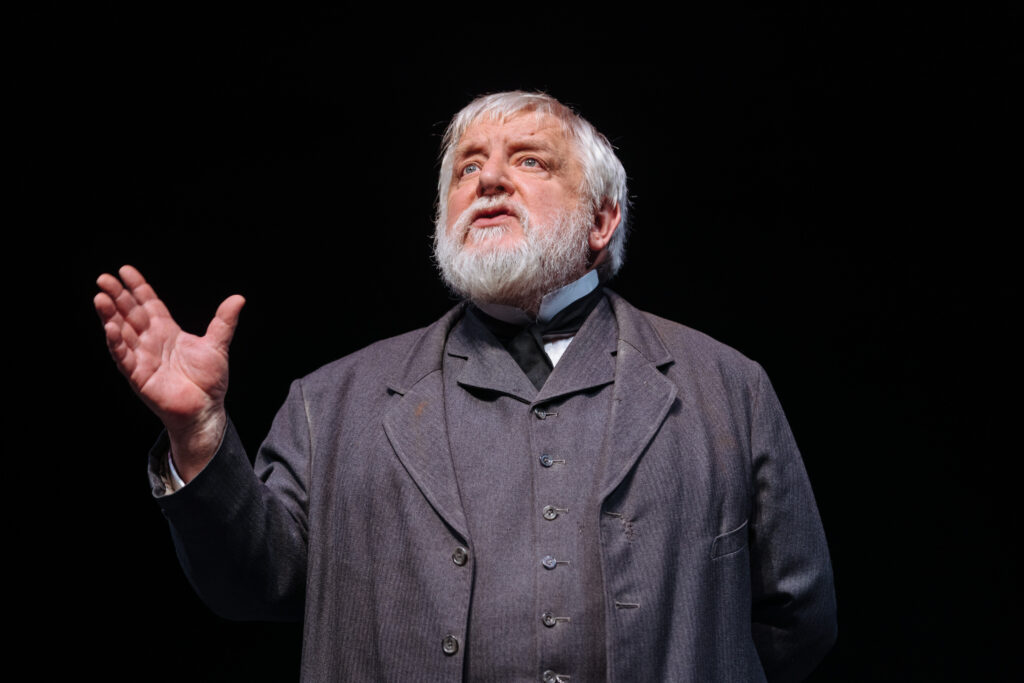Hampstead Theatre, London – until 1st February 2025
Reviewed by Celia Armand Smith
4****
An older man stands at the end of a jetty, a hooded figure in a boat next to him. “Are we waiting for someone?” the man says. “A poet and a scholar was what I was told” replies the hooded figure. The man looks around and says “I think that must be me”. AE Houseman, poet, scholar, classicist, has arrived at the River Styx, waiting for Charon to ferry him away from the land of the living. A journey that will awaken memories of his younger years at Oxford, of friendships and unrequited love, of opportunities missed. The Invention of Love is Tom Stoppard’s lovingly and intensely researched meditation on love and knowledge.
Under Blanche McIntyre’s direction, the cast excels in balancing the intellectual with the emotional, ensuring that the play never feels overly academic. Simon Russell Beale as the older (recently deceased) Houseman is a masterclass in acting, while Matthew Tennyson as the naive and nervous younger Houseman is all sweetness and youth, wildly enthusiastic for his beloved texts, quietly in love with his best friend Moses Jackson (Ben Lloyd-Hughes), and navigating a life that is not created for minds or souls such as his. Dickie Beau is wonderful as the exiled Oscar Wilde, and Alan Williams is very funny as the dry witted Charon.
I can’t say that I followed the plot at every point, however I understood the poetry, humour and sadness of a life of missed chances and quiet regret, and Simon Russell Beale is so engaging that he could be reading an old copy of the phone book and I would be captivated. Morgan Large’s set is wonderful and there are some delightful moments where the young scholars whizz around the stage in illuminated boats.
As with all Stoppard plays, you’ll certainly leave the theatre slightly cleverer than when you arrived and if you can keep up with the dialogue you will learn something about 1870s aesthetes, or the works of Horace, or how ancient texts can change as they pass through systems of writing and translation. And if you can’t, you can admire the talent of the cast as they nimbly navigate the subject matter, and go home promising to read the classics

